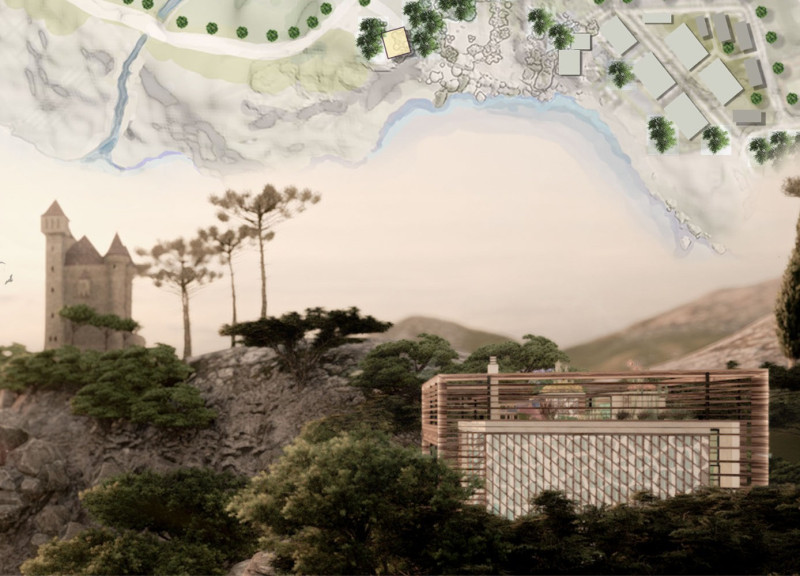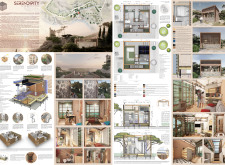5 key facts about this project
Serendipity is a dwelling that integrates thoughtfully with its surroundings, designed as a space for discovery rather than mere observation. The house functions as a comfortable home for a young couple, positioned among trees and rocks. The design encourages a harmonious relationship with nature while emphasizing principles of sustainability and self-sufficiency.
Spatial Organization
The layout inside Serendipity enhances daily living. The living area includes a sofa bed made from recycled pallets, providing flexibility. A pellet stove adds warmth during colder months, creating a cozy environment. A large bookcase with a movable ladder not only serves as storage but also adds a playful touch to the space.
The kitchen is equipped with essential appliances and features a central island that can be extended to accommodate more visitors. Beneath this island, a waste disposal system aids in cleanliness and efficiency. A corridor with a large window connects the living space to a storage room and the bedroom, ensuring good light and easy access throughout.
Sustainability Features
Sustainability is a core focus of Serendipity. It includes a rainwater collection system and solar panels, promoting energy and water independence. The building’s orientation is intentional, capturing sunlight effectively to support natural heating and provide ample daylight. This commitment to the environment reflects a growing trend in architecture aimed at reducing impact on the planet.
Terrace Design
The upstairs panoramic terrace serves multiple purposes. It functions as a peaceful area for relaxation and a practical space for gardening and small animals. Residents can enjoy the outdoors while nurturing plants, which adds to their self-sufficiency. The terrace design enhances the connection to the surroundings, making nature an integral part of daily life.
In addition to its functional aspects, Serendipity features an external covering of spruce, providing a sturdy yet pleasing appearance. This choice in materials complements the natural landscape while supporting the overall goals of the home. The design illustrates a fine balance between modern comforts and a respectful relationship with the environment.



















































